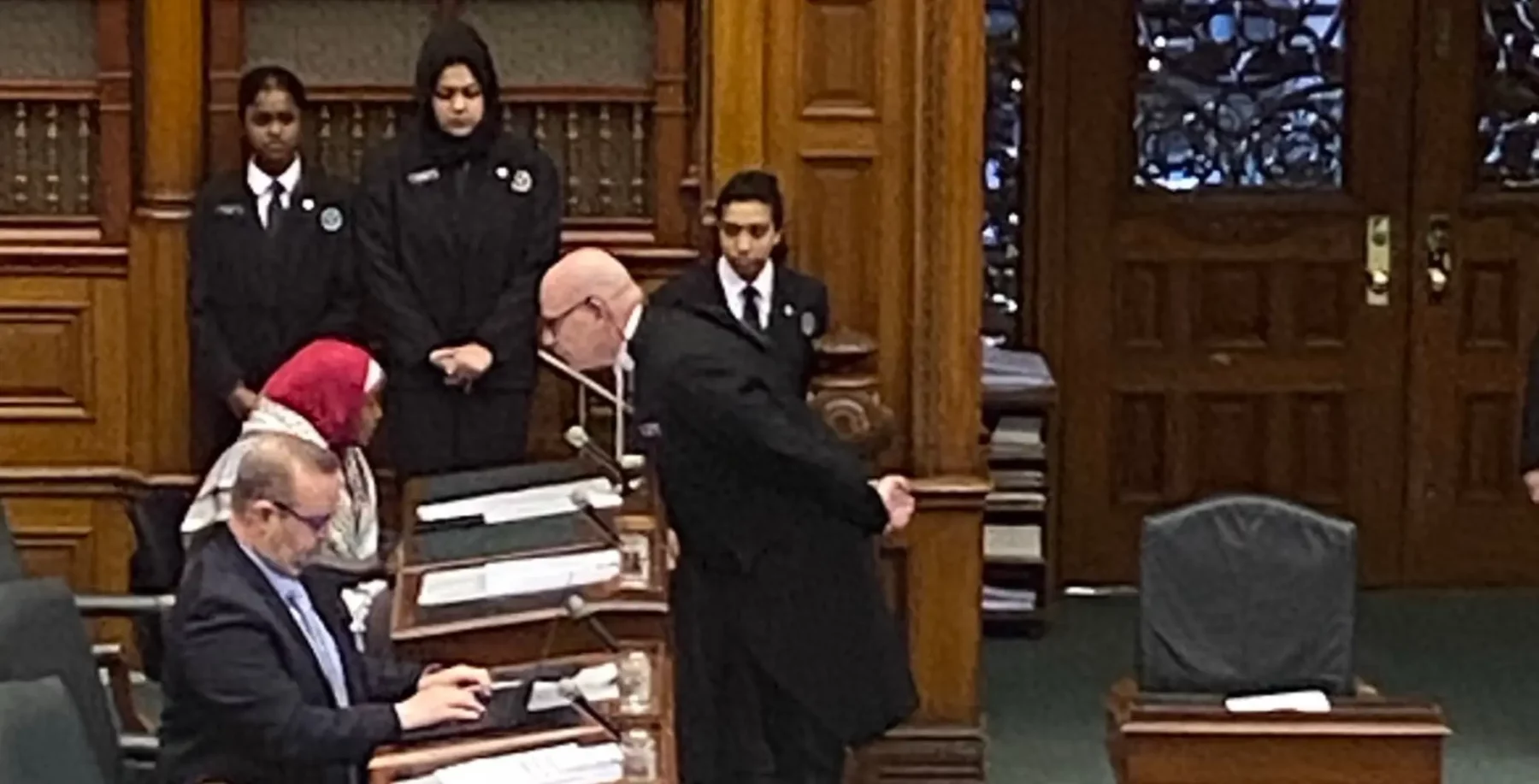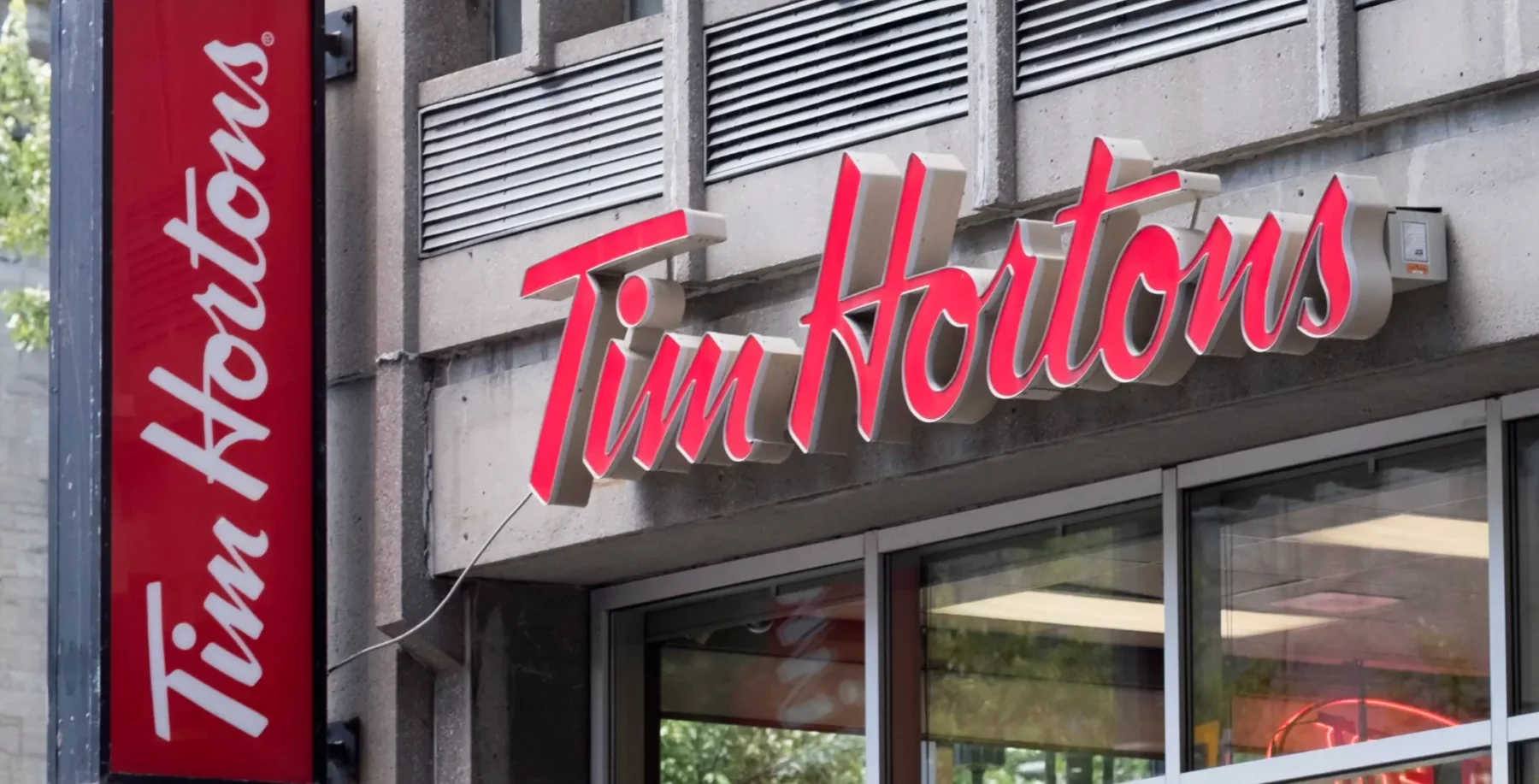
NDP leader Thomas Mulcair borrowed from his late predecessor Jack Layton’s script on his Canada Day whirlwind visit to Toronto Wednesday. “Are you ready to help us to replace the politics of fear and division with the politics of hope and optimism?”
Her Majesty’s Loyal Opposition, riding high in recent polls and still flush with the glow of NDP Premier Rachel Notley’s win in Alberta in May, has arguably never been better positioned to assume power since, well, Layton was leader in 2011. At a barbecue hosted by local NDP MP Andrew Cash at St. Helen’s Catholic School, Mulcair was introduced as “Canada’s next prime minister.”
In a fiesty speech, the NDP leader laid out the main planks in the NDP platform – a $15 minimum wage, $15-a-day childcare and rolling the retirement age back to 65 from 67. He also touched upon what will be a major theme for the NDP in the coming federal election: the need for change.
“A lot has been lost under Stephen Harper, and when you talk to Canadians remind them that it is possible to get change… it’s just one election away,” he said.
Later, the NDP leader fielded a number of questions in a scrum with reporters, including news resurfacing this week about Mulcair taking a position as senior adviser on the environment with the Harper government in 2007 after his falling out with the Quebec Liberals.
Dimitri Soudas, the PM’s former director of communications, whose partner Eve Adams is running for the federal Liberals, told Maclean’s Mulcair didn’t end up taking the position because of a dispute over money. Mulcair tells NOW talks with the HarperCons broke off because “they had no intention whatsoever of moving forward on key issues such as climate change.”
Mulcair: “Well it is no secret that when I left [the Liberal] cabinet it was on a question of principle. I had refused to sign an Order In Council that the government wanted me to sign that would have transferred land in a provincial park [and] allowed developers to build condos. I left cabinet over that.
“During that period I was approached by four federalist parties, frankly, and the Conservatives tried very hard and my discussions with them showed to me clearly that they might have wanted to use me in one of their weakest files, environment. They had no intention whatsoever of moving forward on key issues such as climate change, that’s where the talks broke down. When I chose to run for Jack Layton’s NDP, don’t forget the NDP had never won a single seat in Quebec in a federal general election. I took the challenge of working with Jack to build that social progressive vision in Quebec and across Canada and I’m glad I did.”
And then the question from NOW that blew Mulcair’s socks off: How do you reconcile in your new platform, respecting Indigenous rights, the reality of climate change and supporting domestic pipelines? And, also, do you think there is a possibility of near-term human extinction?
Mulcair: “Well that is one of the most extraordinary questions I have ever been asked in my political career. We go from Indigenous rights to human extinction in one question and try to handle it as much as I can and simply say this: there is no issue on which I have worked harder since becoming leader than issues involving First Nations, Metis, and Inuit rights in this country.
“The NDP would take a different approach. We would create at the cabinet level a committee whose responsibility would be to make sure every decision our government makes takes into account three things treaty rights, inherent rights, and Canada’s international obligations to her first peoples with regard to any major development project.
“You mentioned pipelines but that is just one example. You can’t get to ‘Yes,’ you can’t approve any of those projects right now because Canada does not have a thorough, credible environmental assessment process. That’s the reality. Mr. Harper thought he was giving a gift to the pipeline and other big companies by scrapping large sections of the Navigable Waters Protection Act, the Species at Risk Act, and getting rid of any credible environmental assessment. If you’ve noticed, not one of those projects has been built.
“With regard to my record on climate change… when I was Quebec Minister of the Environment we lowered greenhouse gas emissions. When the Liberals signed Kyoto they had no plan to deal with climate change or greenhouse gas production in Canada. I guess that’s why we went on to have one of the worst records in the world.”
news@nowtoronto.com | @nowtoronto












